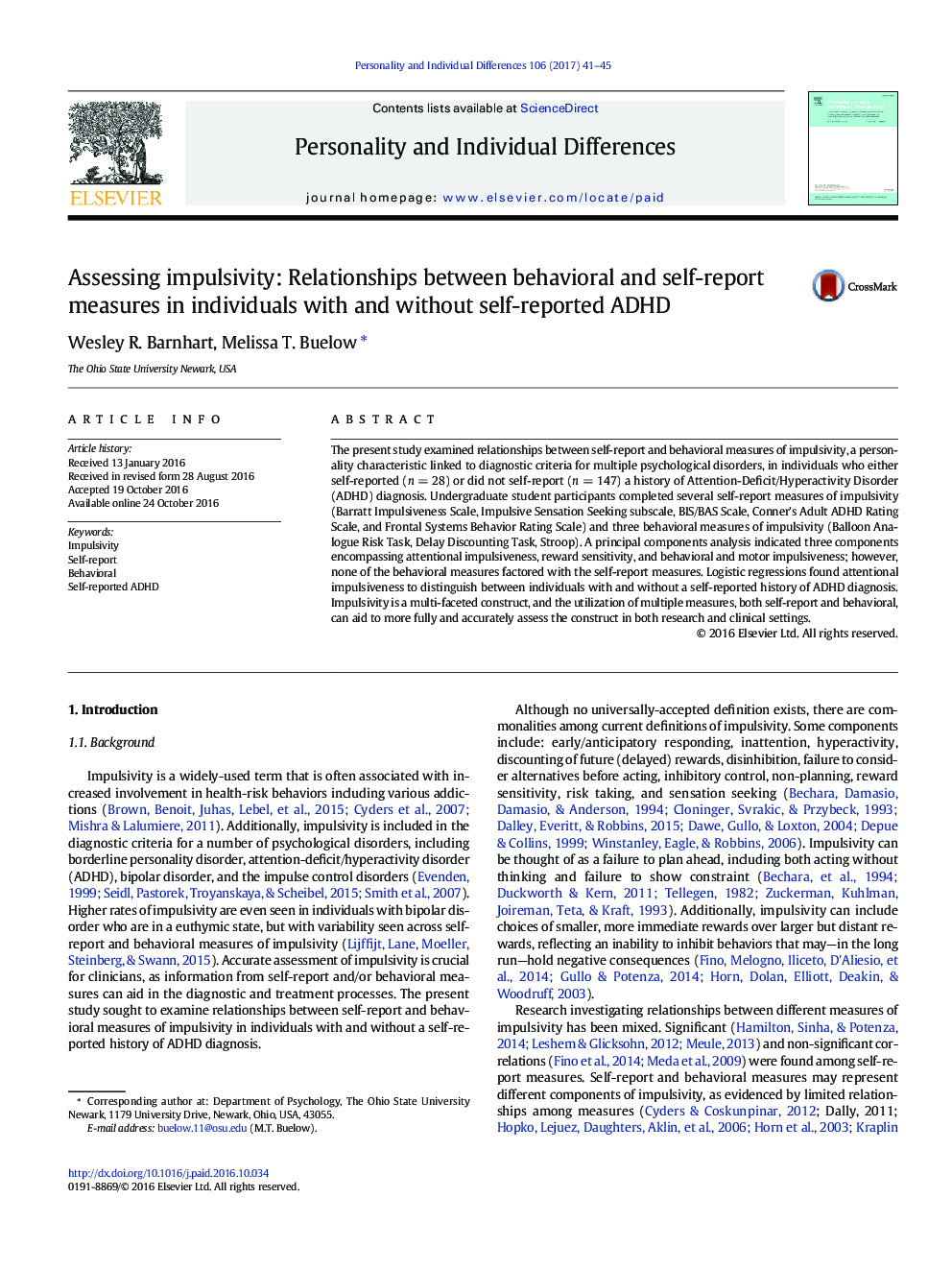| Article ID | Journal | Published Year | Pages | File Type |
|---|---|---|---|---|
| 5036179 | Personality and Individual Differences | 2017 | 5 Pages |
â¢Impulsivity has no uniform definition across clinical and non-clinical studies.â¢The present study examined self-report and behavioral measures of impulsivity.â¢Participants with and without self-reported history of ADHD completed an assessment.â¢Three factors of impulsivity emerged on a principal component's analysis.â¢Attentional impulsivity differentiated between individuals with and without a history of self-reported ADHD diagnosis.
The present study examined relationships between self-report and behavioral measures of impulsivity, a personality characteristic linked to diagnostic criteria for multiple psychological disorders, in individuals who either self-reported (n = 28) or did not self-report (n = 147) a history of Attention-Deficit/Hyperactivity Disorder (ADHD) diagnosis. Undergraduate student participants completed several self-report measures of impulsivity (Barratt Impulsiveness Scale, Impulsive Sensation Seeking subscale, BIS/BAS Scale, Conner's Adult ADHD Rating Scale, and Frontal Systems Behavior Rating Scale) and three behavioral measures of impulsivity (Balloon Analogue Risk Task, Delay Discounting Task, Stroop). A principal components analysis indicated three components encompassing attentional impulsiveness, reward sensitivity, and behavioral and motor impulsiveness; however, none of the behavioral measures factored with the self-report measures. Logistic regressions found attentional impulsiveness to distinguish between individuals with and without a self-reported history of ADHD diagnosis. Impulsivity is a multi-faceted construct, and the utilization of multiple measures, both self-report and behavioral, can aid to more fully and accurately assess the construct in both research and clinical settings.
